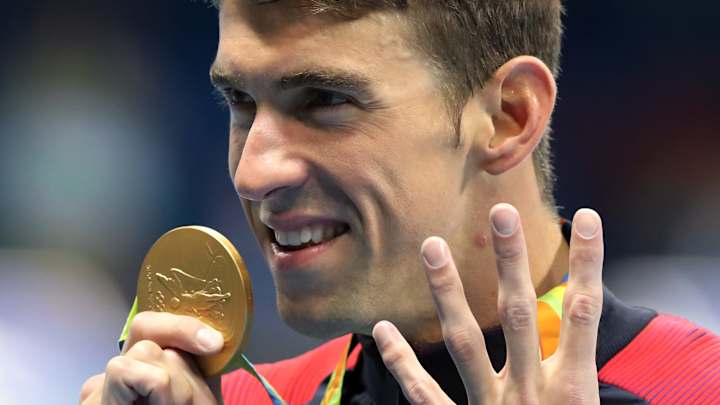Michael Phelps talks to Congress about athlete drug testing

WASHINGTON (AP) After staying in his lane as a swimmer and not speaking out about doping in international competition, Michael Phelps is ready to take on the issue in retirement.
Phelps testified Tuesday before a congressional hearing on improving anti-doping measures, delivering the message that he doesn't believe the Olympics and other competitions are clean and that athletes don't believe in the testing system that's in place. Phelps, who has won 28 Olympic medals, said athletes get ''disillusioned'' when they see others cheat, he and asked the House Energy and Commerce Subcommittee on Oversight and Investigations to help ''ensure the system is fair and reliable.''
''I don't believe that I've stood up at international competitions and the rest of the field has been clean,'' Phelps said during the hearing. ''I don't believe that. I don't think I've ever felt that. I know that when I do stand up in the U.S., I know we're all clean because we're going through the same thing. Internationally I think there has to be something done, and it has to be done now.''
Phelps testified alongside shot putter Adam Nelson, U.S. Anti-Doping Association CEO Travis Tygart, World Anti-Doping Association deputy director general Rob Koehler and International Olympic Committee medical and scientific director Richard Budgett.
Nelson in 2013 was awarded a 2004 Olympic gold medal when Ukrainian Yuriy Bilonog retroactively tested positive for a banned substance. Nelson told the story about how he received his medal from an U.S. Olympic Committee official in the food court of the Atlanta airport. Holding it in his hand, Nelson asked those in charge to ''give meaning to my medal'' because it didn't mean the same.
Phelps, who has won more Olympic medals than any other athlete, said he was stunned to learn that while he was drug-tested 13 times leading up to the Rio Olympics, 1,913 athletes in 10 ''high-risk'' sports were not tested at all leading up to the Games. And in total, 4,125 athletes actually had no record of testing in 2016 before Rio.
''For us, sometimes it's annoying when we get woken up at 6 o'clock in the morning but, you know what, I'll do that to make sure that we're all competing at a fair level,'' Phelps said after the hearing. ''I wish I could say that about everybody else in the world.''
Tygart called that ''unacceptable'' and said it's a result of what happens when sports are allowed to police themselves.
Koehler said such lapses in testing cannot and should not happen. He and Budgett said the IOC and WADA were moving toward taking sports organizations out of the decision-making process for anti-doping measures and sanctions.
Investigations that found that as many as 1,000 Russian athletes across 30 sports benefited from systematic, organized doping prompted the hearing. Committee chairman Greg Walden, R-Ore., said the response from international governing bodies ''has become a hodgepodge of indecisive and inconsistent actions.''
Budgett pointed to independent testing as a potential way of stopping inequities like more than 1,900 Olympians not being subjected to testing before competing. Tygart believes the solution is for the IOC and WADA to fund more testing.
''They can make that decision today if they want to back up the statements that they make that absolutely clean sport is their No. 1 priority,'' Tygart said. ''We just need to see the action behind those words.''
Now that he has hung up his swim trunks, Phelps is more than willing to take up the cause of curbing doping in international sports.
''We need to take care of this issue and we need to figure it out. If that's more money, it's more money,'' Phelps said. ''This is something that needs to happen now, and I'm glad are people are actually starting to take this seriously, take this in a serious manner because it is crushing sports for our youth and for everybody else in the world.''
